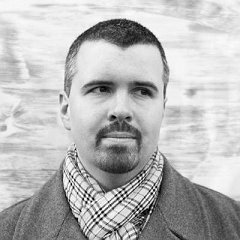Research Skills: How to Bootstrap a Research Project
One of the most frustrating experiences early-career researchers usually go through is the process of committing to a particular project, which they would be excited about and drive to a conclusion. Being in the state of “knowing, but not doing things”, pondering ideas, but not publishing papers, often leads one to questioning their motivation, relevance of their own expertise, chosen topic, and ability to deliver a scientific result.
Luckily, the field of programming languages provides many ways to escape this crisis. In my talk, I will attempt to provide some actionable advice, as well as constructive examples, extrapolating from my own research experience, on how to escape this “research limbo” and become productive and content, while advancing the state of the art (not just thinking about it).
| Slides (bootstrap-plmw19.pdf) | 9.97MiB |
I am a tenure-track Associate Professor at Yale-NUS College and NUS School of Computing (Singapore).
Prior to joining Yale-NUS, I was a faculty at University College London. Before then, I was a postdoctoral researcher at IMDEA Software Institute (Madrid, Spain). I defended my PhD in 2012 in the DistriNet research group at the Department of Computer Sciences of KU Leuven (Belgium). Before that I received my MSc degree in Mathematics and Computer Science from Saint Petersburg State University (Russia) in 2008.
My research interests dwell in the area of the design and implementation of programming languages, including but not limited to program semantics, certified programming, concurrency and abstract interpretation. I am particularly interested in developing verification techniques and static analyses for higher-order and concurrent programs.
Tue 15 JanDisplayed time zone: Belfast change
16:00 - 17:30 | |||
16:00 30mTalk | Research Skills: How to Bootstrap a Research Project PLMW Ilya Sergey Yale-NUS College and National University of Singapore Pre-print File Attached | ||
16:30 60mTalk | Panel: How to Do Good PL Research PLMW Vasco T. Vasconcelos LASIGE, Faculty of Sciences, University of Lisbon, Deepak Garg Max Planck Institute for Software Systems, Philippa Gardner Imperial College London, Atsushi Igarashi Kyoto University, Japan, Neel Krishnaswami Computer Laboratory, University of Cambridge Pre-print | ||
